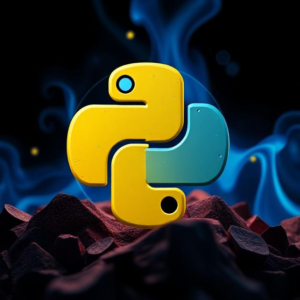Description
A typical Java Developer syllabus covers a wide range of topics, from the basics of the language to more advanced concepts like frameworks and design patterns. Below is a general outline that can help guide your learning path or syllabus if you’re planning to study Java development:
Duration: 240 Hrs
1. Introduction to Java
- History and Features of Java
- Java Development Kit (JDK) and Java Runtime Environment (JRE)
- Java Virtual Machine (JVM)
- Setting up a Java development environment (IDE, JDK installation)
- Writing your first Java program (Hello World)
2. Core Java Concepts
- Variables, Data Types, and Operators
- Primitive data types (int, float, double, char, boolean, etc.)
- Variables and constants
- Arithmetic, logical, and relational operators
- Control Statements
- Conditional Statements (if-else, switch)
- Loops (for, while, do-while)
- Arrays
- Single and multi-dimensional arrays
- Array manipulation
- Methods
- Defining and calling methods
- Method overloading and overriding
- Variable-length argument lists (varargs)
- Object-Oriented Programming (OOP) Concepts
- Classes and Objects
- Constructors
- Inheritance
- Polymorphism
- Abstraction
- Encapsulation
- Interfaces and Abstract Classes
3. Exception Handling
- Introduction to exceptions
- try-catch-finally block
- Types of exceptions (checked vs. unchecked)
- Throwing and creating custom exceptions
- Exception propagation
4. Collections Framework
- Lists (ArrayList, LinkedList)
- Sets (HashSet, TreeSet)
- Maps (HashMap, TreeMap, LinkedHashMap)
- Queues (PriorityQueue, LinkedList)
- Iterators and For-Each Loop
- Generics in Collections
5. Java I/O (Input/Output)
- File I/O (FileReader, FileWriter, BufferedReader, BufferedWriter)
- Serialization and Deserialization
- Streams (Byte Stream vs. Character Stream)
- NIO (New I/O) – Path, Files, FileChannel, etc.
6. Java 8 Features (and beyond)
- Lambda Expressions
- Streams API
- Functional Interfaces
- Optional Class
- Default Methods in Interfaces
- Method References
7. Multithreading and Concurrency
- Creating threads (Thread class vs Runnable interface)
- Thread synchronization
- Executor framework
- Callable and Future
- Locks (ReentrantLock, ReadWriteLock)
- Concurrency utilities (CountDownLatch, Semaphore, CyclicBarrier)
8. JDBC (Java Database Connectivity)
- Setting up a database connection
- Executing SQL queries (SELECT, INSERT, UPDATE, DELETE)
- PreparedStatement vs. Statement
- ResultSet and its usage
- Transactions in JDBC
- Connection Pooling (e.g., HikariCP, Apache DBCP)
9. Java Design Patterns
- Creational Patterns (Singleton, Factory, Builder)
- Structural Patterns (Adapter, Composite, Proxy)
- Behavioral Patterns (Observer, Strategy, Command)
10. Java Frameworks (Spring & Hibernate)
- Spring Framework
- Inversion of Control (IoC) / Dependency Injection (DI)
- Spring Boot for Microservices
- Spring MVC for web development
- Spring Data and JPA
- Spring Security
- Hibernate
- Object-Relational Mapping (ORM)
- Hibernate Mapping (One-to-One, One-to-Many, Many-to-Many)
- Hibernate Query Language (HQL)
- Criteria API
11. Web Development (Optional but Highly Recommended)
- Servlets and JSP (Java Server Pages)
- Web APIs (RESTful services with Spring Boot)
- JSON parsing and working with REST
- Java Web frameworks (Spring MVC)
- Client-Server architecture
12. Unit Testing and Test-Driven Development (TDD)
- Introduction to JUnit
- Writing unit tests in JUnit
- Mocking with Mockito
- TestNG
- Test-Driven Development (TDD) approach
13. Version Control Systems
- Git basics (commit, push, pull, branches)
- GitHub for repositories and collaboration
- Merging, resolving conflicts
14. Build Tools
- Introduction to Maven
- Dependency Management in Maven
- Creating and running a Maven project
- Gradle basics
15. Basic Security Concepts
- Secure coding practices (e.g., SQL injection prevention)
- Encryption and Decryption
- Authentication and Authorization
16. Advanced Java Topics (Optional)
- Java Memory Model
- Garbage Collection and Memory Management
- Performance Tuning and Profiling
- Java Native Interface (JNI)
- JavaFX (for GUI applications)
17. Best Practices and Code Quality
- Writing clean and maintainable code
- Code reviews and pair programming
- Refactoring techniques
- Logging and debugging strategies
- Practice Platforms:
- LeetCode, HackerRank, and CodeSignal for Java coding challenges.
- GitHub to store and showcase projects.
This syllabus provides a structured path, but depending on your focus (backend, web development, microservices, etc.), you can adjust the emphasis on certain sections (like frameworks or databases).






Reviews
There are no reviews yet.